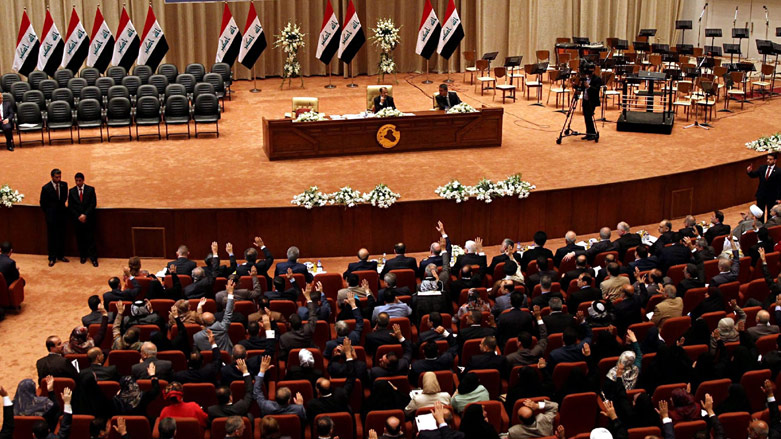Kurds hold last rounds of government talks in Baghdad ahead of Iraq's first parliamentary session

ERBIL (Kurdistan 24) – The two Kurdish leading parties in Iraq held the last round of talks with Iraqi parties in Baghdad as parliament is set to hold its first session on Monday.
On Saturday evening, the joint delegation of the Kurdistan Democratic Party (KDP) and the Patriotic Union of Kurdistan (PUK) arrived in Baghdad and met with the outgoing President of Iraq, Fuad Masum, to discuss the current political situation and efforts to form a new Iraqi government.
The delegation is scheduled to hold a number of meetings on Sunday, as attempts to reach an agreement with Iraqi parties and coalitions to form the new government ramp. At the top of the agenda, the delegation will be discussing the demands of the people of the semi-autonomous Kurdistan Region.
There are intense rivalries between the two main Shia coalitions to form the largest parliamentary bloc and lead the new government. The al-Fatih and State of Law coalition, led by Hadi al-Amiri and Nouri al-Maliki, and the Sairoon-led bloc, allied with the Nasr (Victory) coalition, headed by Muqtada al-Sadr and Haider al-Abadi respectively.
Speaking to reporters in Baghdad on Sunday morning, Mala Bakhtiyar, the head of the PUK delegates, reaffirmed previous claims that the two leading Kurdish parties would join the parliamentary bloc that would support the Kurdish National Project drawn up by the two parties.
“Today, we will meet with all Iraqi parties. Tomorrow is the first parliamentary session, and we hope it will yield some positive results,” Bakhtiyar continued.
“We expect, in the coming days, to make headway [with other parties] regarding initial agreements and the implementation of the constitution.”
The Kurdish leadership, over the past decade, has repeatedly accused Baghdad of failing to implement the articles of the Iraqi constitution and agreements signed with the Kurdistan Region.
Bakhtiyar mentioned that the joint KDP-PUK project is a program to represent the Kurdish nation and that the two parties will join any bloc commits to its implementation.
“We assign importance to past examples [of the Iraqi government] failing to implement the constitution as a whole, and Article 140 in particular, not addressing the issues of oil and gas, and the failure to adequately arm Peshmerga forces,” Bakhtiyar argued.
“We hope this time the government will be formed in a way that no party would be able to avoid implementing the articles of the constitution and fulfilling its commitments,” he concluded.
According to an informal system of power-sharing in Iraq, the Prime Minister’s post is held by a member of the Shia community, a Sunni Iraqi is speaker of parliament, and a Kurd holds the presidency.
Editing by Nadia Riva
